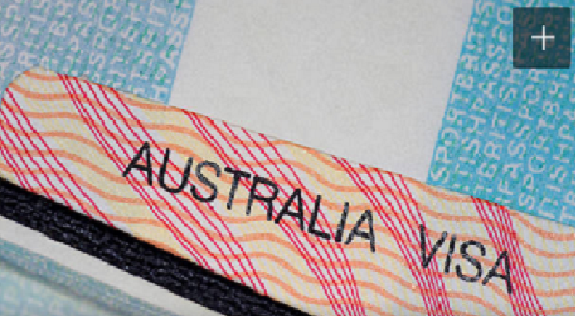Kristina Keneally criticises Peter Dutton’s visa chaos. The Morrison Government clearly has no plans to deal with the chaos in our visa system, writes former Immigration Department deputy secretary Abul Rizvi.
NEW Shadow Minister for Home Affairs and Immigration Kristina Keneally has signalled Labor’s intention to hold the Government to account for the chaos in our visa system. This article updates some of the data on that chaos which confirms the Department of Home Affairs continues to struggle. The Department’s funding over the next few years, together with its plans for visa privatisation, suggest the Government has no effective method for regaining control over our air borders. The problems with our visa system start with enormous visa application backlogs and ballooning processing times.
Table 1: Applications on Hand Versus Places
| Visa Category | On Hand End June 2018 | Places in 2017-18 |
| Partners | 80,936 | 39,799 |
| Regional Sponsored Migration Scheme | 22,500 | 6,221 |
| Employer Sponsored Migration | 53,094 | 35,528 |
| Business Innovation | 20,610 | 7,260 |
We are unlikely to get an update on these backlogs until the Government releases the report on the 2018-19 Migration Program.
Peter Dutton has cut down on the number of partner visas available and created a backlog of 80,000 applications, flouting the Migration Act.”
But we do know these backlogs are forcing people to bypass the off-shore visas they really want and use visitor visas to enter Australia, and then apply for the visa they really wanted. This is showing up in the fact over 24% of net overseas migration in 2017-18 was due to people arriving on visitor visas and changing status — an astonishing and unprecedented level. It is a key indicator of a visa system that is out of control. This trend is highly likely to increase further in 2018-19 and 2019-20.
People arriving on visitor visas contributing to net overseas migration (NOM) arrivals
| Year | 2013-14 | 2014-15 | 2015-16 | 2016-17 | 2017-18 |
| Visitor Arrivals Contributing to NOM | 44,450 | 50,240 | 60,550 | 71,870 (Est) | 78,020 (Est) |
The massive level of people arriving on visitor visas and then applying for a different visa after arrival, is contributing to record increases in the backlog of people in Australia on bridging visas (see Table 3). These are visas the Department of Home Affairs uses when it cannot process onshore visa applications quickly enough.
Stock of People on Bridging Visas as at end March
| Year | 2014 | 2015 | 2016 | 2017 | 2018 | 2019 |
| BV Holders | 107,191 | 111,178 | 136,904 | 153,809 | 194,875 | 229,242 |
Accelerating growth in the bridging visa backlog is screaming out to criminals and spivs that Australia’s visa system is in trouble. It is creating a honeypot attracting people smugglers who abuse our onshore protection visa system.
In 2017-18 we had a record number of onshore asylum seeker applications, exceeding that of any year under the Rudd/Gillard governments (see Table 4). And while Home Affairs processed around 15,000 asylum seeker cases at the primary stage in 2017-18, that meant the primary stage backlog grew by around 13,000.
Onshore Protection Visa Applications (ie Asylum Seekers)
| Year | 2014-15 | 2015-16 | 2016-17 | 2017-18 |
| Total | 8,587 | 9,554 | 18,290 | 27,931 |
| Malaysia | 1,401 | 3,549 | 8,579 | 9,319 |
| China | 1,299 | 1,099 | 2,269 | 9,315 |
| India | 674 | 582 | 1,133 | 1,529 |
The record number of asylum seekers and bridging visa holders are flowing onto a rapidly growing backlog at the Administrative Appeals Tribunal (AAT). Despite efforts to increase AAT decisions, the backlog continues to rise
Stock of active cases at AAT Migration and Refugee Division
| Year | End July 2016 | End June 2017 | End June 2018 | End May 2019 |
| Migration Cases | 11,798 | 16,092 | 29,991 | 38,293 |
| Asylum Cases | 5,682 | 8,370 | 14,445 | 20,149 |
| Total | 17,480 | 24,462 | 44,436 | 58,442 |
The 2019 Budget shows a $150 million cut to Home Affairs staff wages and salaries to June 2021, which could equate to a 15% cut of the total workforce. https://www.smh.com.au/federal-election-2019/fears-of-home-affairs-job-losses-as-government-cuts-staff-budget-by-150-million-20190509-p51lok.html …
Fears of Home Affairs job losses as government cuts staff budget by $150 million
The revelations have fuelled concern that the national security agency is planning to axe thousands of workers. Mr Dutton cannot hide from the fact that he is an incompetent Minister who has lost control of our borders, lost control of visa and citizenship processing, lost control of his budget, and lost control of his department. The active asylum seeker caseload at AAT is also growing rapidly and at end May 2019, stood at 20,149. Flow through to the AAT from the 2017-18 surge in asylum seekers at the primary stage is continuing, with 61% of asylum applications year to date in 2018-19 being from Malaysia and 13% from China. While the AAT refusal rate for the current cohort of asylum seekers is 92%, we do not know what portion of the failed asylum seekers are leaving Australia, being located and removed or just melting into the community.
Home Affairs does not publicly disclose the size of the total asylum seeker backlog at the primary stage or the total number of asylum seekers who have been refused but remain in Australia mostly as overstayers. The total number of asylum seekers at primary stage, at the AAT and the number who have become overstayers over the past five years, is unlikely to be less than 50,000 and most likely much larger and growing rapidly.
The visa system – and by implication our borders – has never been so out of control. It will take many years and many hundreds of millions of dollars (possibly billions) to get back to an even keel.
But the 2019 Budget Papers reveal funding for both visa and citizenship processing, as well as for border security, to be in steep decline. Funding for border security is to decline by 30.3% over the forward estimates, while funding for visa and citizenship processing is to decline by 16.2%.
The Government clearly has no plans to deal with the chaos in our visa system.
To our shame, it now seems highly likely Australia will follow the European and U.S. path of a growing permanent underclass of failed asylum seekers who will live from hand to mouth trying to obtain work illegally wherever possible.
It is good the Opposition has indicated an intention to expose this appalling situation.
Abul Rizvi was Deputy Secretary of the Department of Immigration. He was awarded the Public Service Medal and the Centenary Medal for services to development and implementation of immigration policy, including in particular the reshaping of Australia’s intake to focus on skilled migration. He is currently doing a PhD on Australia’s immigration policies.



